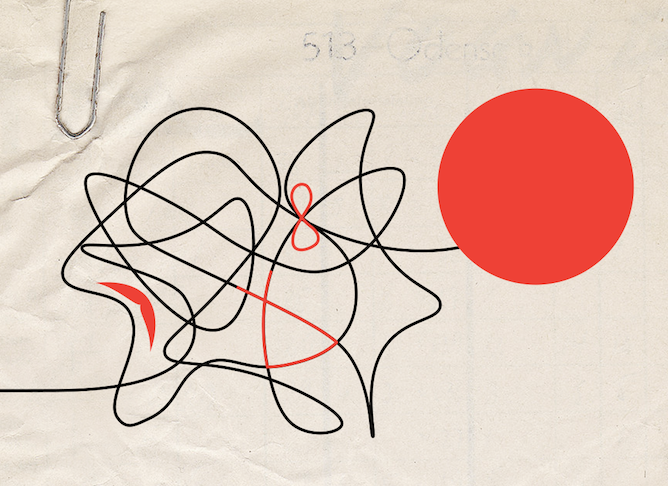3. TPatT - Indigenous Texts in French
All Indigenous works that were first published in French before 2000 are included in this database.
Pages
-

- Affirmation, déformation, information:
- To be Indigenous in 1993 is difficult, states the author, but it is even harder to be (or claim to be) an Indigenous artist, as critics are quick to sink those who do not “fit” their expectations. Nevertheless many artists move forward as giving up is not an option. The author discusses several preformances that were criticized by the media, namely Indigena, The Rez Sisters (in French) and À temps pour l’indian time.
-

- Andatha
- Andatha is the first collection of poetry written in French. The author was known as “the spiritual Mother of the Huron-Wendats/Wyandots” and was the first Canadian Indigenous woman to receive a Ph.D. Her writing is resonant with her experience growing up among traditionalists on the Forty Arpents Reserve and calls for her people’s self-affirmation and dignity., test test test.
-

- Art décoratif et vestimentaire des Amérindiens du Québec : XVIe et XVIIe siècles.
- The author conducts a study of the Indigenous peoples of Quebec’s acculturation through a history of ceremonial clothing during the 16th and 17th centuries. Metal objects, pearls and fabric quickly replaced items made by Indigenous peoples; this can be seen as a way to make Indigenous peoples forget about traditional techniques and practices.
-

- Atanukana. Légendes montagnaises. Montagnais legends.
- Innu “atanukana” (“myth-legends,” stories). The stories included here were collected, transcribed and translated by the authors., No primary genre has been indicated purposefully. There is a need to better represent Indigenous writings and contemplate how some fall outside the traditional fiction/non-fiction binary.
-

- Atanutshe, nimushum
- Dedicated to "the people of Natashquan", this collection of 18 short stories speaks of 'atanukan' ('myth-legends'), when men and animals "had not been made different yet," and of 'tipatshimun', which are stories about Elders' lives., Citation for source used in abstract is needed.
-

- Atanutshe, nimushum. Récits racontés et recueillis par les montagnais de Natashquan
- Dedicated to “the people of Natashquan,” this collection of 18 short stories speaks of atanukan (“myth-legends”), when men and animals “had not been made different yet,” and of tipatshimun, which are stories about Elders’ lives., No primary genre has been indicated purposefully. There is a need to better represent indigenous writings and how some fall outside the traditional fiction/non-fiction binary.
-

- Atiskenandahate. Le Voyage au pays des morts.
- This piece is based on the concept of the longhouse, its architectural and ceremonial structure which divides men and women in different clans (during the performance, members of the audience are seated accordingly). At the confluence of the Algonquian and Iroquian worlds, a young couple fights; the young woman is killed by her companion. He must descend to the land of the dead in order to bring back her soul, but not before going through many challenges. This initiatory journey becomes a journey into his own ignorance. Through his (re)discovery of mythology he learns how to bring back not only his lover’s soul but human dignity, and (re)learns how to love.
-

- Autonomie
- In this poem, the author equates autonomy with memory, freedom, and 70’000 years of untarnished history. The territory “represents his roots.”, While we have indicated a primary genre, there is a need to better represent Indigenous writings and contemplate how some fall outside the traditional fiction/non-fiction binary.
-

- Autonomie
- In this poem, the author equates autonomy with memory, freedom, and 70’000 years of untarnished history. The territory “represents his roots.”
-

- Broderies sur mocassins
- This collection of poetry is the first to be published by an Atikamekw author, who writes of birth, childhood, adolescence, maturity, wisdom, seasons, newborns, respect, maternity, strength and spirit. His writing process evolved through conversations with Elders about traditional Atikamekw spiritual practices before the advent of catholicism.
-

- Carcajou, le glouton fripon
- Stories from the Atikamekw nation presented in comic book form, funded by the Canada Council, the Secretary of State and Quebec’s Ministry of Cultural Affairs – however, several schools refused to use them because of depictions of nudity.
-

- Cet être
- This poem is about cinephiles who will attend every single film festival in Montreal (African, women’s, new, international) except for the Indigenous festival, the Festival du film et de la vidéo autochtones de Montréal.

